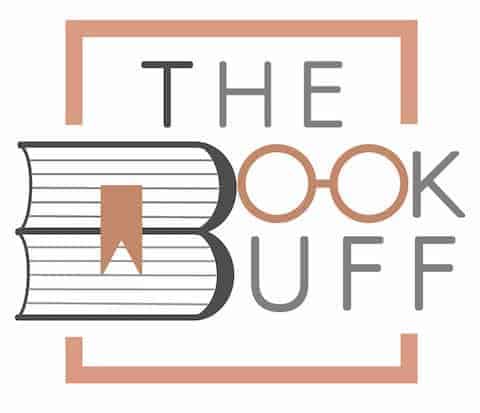Does Reading Make You a Better Writer? Truth Revealed!
Disclosure: This post may contain affiliate links. – meaning I may get a commission if you decide to purchase through my links, at no additional cost to you.
So you’ve watched an interview of your favorite author or have seen J.K. Rowling’s net worth: both of those will have you wanting to become a writer. And if you’re not too keen on reading books, especially the thick classics, you might wonder if you need to read to become a better writer!
Reading makes you a better writer by exposing you to what works. Works that are traditionally published meet a certain standard, and by reading a lot, you gain unconscious competence in the domains of vocabulary, grammar, and narrative building. The more you absorb, the more you can express.
In this article, you’ll discover the ways in which writing is influenced by reading as well as what established authors have to say about reading.
You’ll also learn of the alternative view that aims to protect the purity of ideas by shunning reading. In the end, you’ll be able to form your conclusion regarding the role of reading in improving your writing.
How Does Reading Influence Your Writing?
Reading positively influences your writing skills. Since reading and writing require similar cognitive skills, developing one also positively impacts the other. Reading develops the vocabulary which in turn affects the quality of writing!
Research suggests that what and how you read affects what and how you write. It is said that reading and writing are “similar processes of meaning construction,” a belief backed up by empirical studies.
Research conducted by American Educational Research Association analyzed the impact of reading on writing. Unsurprisingly, the study concluded that reading strengthened writing. Furthermore, when the participants were asked to read text, it also enhanced their writing performance!
Thus, you can safely say that reading improves your writing skills!
Acquiring the tools needed for writing is not possible without having a habit of reading. Readers can not only come up with creative ideas but also express themselves better with the expanded vocabulary that comes with reading.
It is quite common for writing to come naturally to avid readers because they can recall a wealth of words that match their thoughts.
Related Article – 21 Benefits of Reading Regularly [Here’s Why We Should All Read!]
Since readers come across examples of good sentence structure many times, they are able to apply them to their writing. They can also experiment and play around with different writing styles and opt for the one that best suits the mood of the thought being written.
Furthermore, they can develop a good grip on grammar, punctuation, and even different figures of speech and their correct use.
Can Reading Improve Your Vocabulary?

Reading definitely improves vocabulary. Reading increases the reader’s exposure to novel words. Furthermore, repetition of words that you’ve already learned further cements the reader’s knowledge and builds the vocabulary.
Research published in the journal of speech, language, and hearing research indicated that there is a direct correlation between reading and improving vocabulary. It further stated that “reading text can provide key opportunities for advancement in vocabulary development.“
Good reading has a reinforcing effect on our vocabulary. Since good readers come across diversified content, they pick up on the minute tips and techniques of making a piece of writing interesting.
Furthermore, regular readers also master the ability to add creativity and imagination to their words which virtually transports their audience to the scene they are describing. Since such imagery can be conveyed through apt use of vocabulary, a diverse one comes in handy.
Consistent exposure to new words through reading brings out a considerable improvement in your mental dictionary. Observing the different use of words in different contexts allows you to have more words to use in more ways, either during conversation or writing.
This also enhances your communication skills and allows you to articulate your thoughts accurately.
Some of the books that can considerably improve your vocabulary are Alexandre Dumas’ famous adventure novel “The Count of Monte Cristo,” Gabriel Garcia Marquez’s modern love story “Love in the Time of Cholera,” George R.R. Martin’s incredibly famous “Game of Thrones,” Jonathan Swift’s “Gulliver’s Travels,” and “Ulysses,” one of James Joyce’s masterpieces.
The rich mixture of vocabulary, writing styles, and figures of speech used in these writings is a great way of improving your vocabulary.
Can You be a Good Writer Without Reading?
Generally speaking, reading plays an important in becoming a good writer. Most good writers are voracious readers. Critical reading can help you observe various writing techniques and tools that other writers employ, and help you distinguish between different writing standards.
Many renowned writers have a lot to say about whether you can be a good writer without being a good reader first. A majority of them are in support of this notion because they themselves became good writers by using the skills they obtained from reading. J.K. Rowling says that “You can’t be a good writer without being a devoted reader.”
Similarly, William Faulkner is of the view that one should “Read, read, read everything — trash, classics, good and bad, and see how they do it. Just like a carpenter who works as an apprentice and studies the master. Read!”
One can become a writer without being a reader but not a good one. Adam Philips says that “I had never had any desire to be a writer. I wanted to be a reader.” Through that, we come to know that we cannot become good writers until we read what critics around the world consider good or bad writing.
Cormac McCarthy says that “The ugly fact is books are made out of books,” and that is true as one cannot simply build a safe, beautiful, and functional home for future readers without studying what has worked for them in the past.
Does a Good Reader Make a Good Writer?
Reading certainly helps you become a good writer. However, a good reader isn’t always a good writer. You also need to have sufficient writing skills in addition to a strong vocabulary (which can be built by reading).
You can certainly “write” without delving into the worlds created by other writers, but you cannot “become a good writer.” There is a huge difference between the two, one that can only be identified by readers and eliminated by reading.
Some people negate the necessity of reading for writing. In fact, they believe that you can paint a unique picture never seen by the world before without getting tarnished by the beliefs and viewpoints of other people.
A gifted storyteller does not need to pollute his mind with the tongues of other supposed writers. Umberto Eco, the author of the fantastic “The Name of The Rose,” said that he told people, “You know, I don’t read, I write.”
This is not a practical approach to literature and writing because reading makes creative consciousness a habit.
It also helps improve cognitive cohesion, as the act of reading is just like an exercise for your brain and creativity. It holds the ability to rewire a human and reveals to him a slice of the writer’s reality, a reality which the reader can either relate to or learn from.
5 Other Ways to Become a Better Writer

Reading is not the only thing that you need to do when you aspire to become a better writer. Here are a few other things that you should look at when trying to become a better writer –
1. Skip Sections Instead Of Wasting Time And Ruining Interest
Although reading makes a good writer, it is not always easy to read. Reading a book that just doesn’t seem to end or invoke your interest is a hefty task.
Skipping pages causes anxiety in most people, but it is important to know that giving up brings a different kind of freedom, one that very few of us have experienced.
It is okay not to see everything if you have seen something. Similarly, it is also okay to skip certain sections of the piece you are reading to regain your interest in it instead of giving up on it completely.
You can skim through and grab the gist of the writing, which is the next best thing to reading.
2. Observe And Take Notes
Writers are never without a notebook at hand. Not only is taking notes a great trick to getting the most out of what you are reading, but it is also a great way of getting new ideas.
Almost all great writers got the idea for their masterpieces from the most common of places in their surroundings at the most common of times.
You can do the same by observing the phenomena that take place around you with a keen eye. Never let any of your thoughts go to waste; write them down and ponder over them later, and who knows, you might be able to get the idea for the next bestseller.
3. Get A Hold Of The Basics
No matter how great your idea or thought about a specific thing may be, you cannot bring it to life if you do not have the right words or sentence structure.
Brushing up on the basics of the language you intend to write in is extremely important.
Acquiring at least an intermediate level of understanding of the basic principles of writing does not require you to enroll in a university.
All you need to do is take advantage of the various easily accessible resources on the correct use of grammar and other helpful topics.
4. Find A Writing Partner
It is not impossible to find an individual pumped to become a good writer in your social circle. One of the best ways of becoming a better writer is finding a writing partner who can provide you with honest feedback and motivate you to become better.
Although writing is mostly a solitary activity, seizing the right time to get feedback works wonders in improving.
Your writing partner may disagree on the stance your writing takes, and that can provide you with food for thought. He/she may also spot any mistakes that you may have overlooked.
This way, you can hold each other accountable and push each other to never give up as well.
5. Join A Writing Workshop Or A Group Of Like-Minded People
The global world of today makes the task of joining a workshop or meeting like-minded people quite easily. Content marketing meetups and professional development groups are the talks of the town these days.
Being in a room with people who share the same interest as you can prove quite valuable in baring your soul to the writing world.
You can join such groups on LinkedIn or sites like Meetup and turn your creative wheels by interacting with people and bringing yourself face to face with new ideas, honest feedback, and diversified opinions.

About the Author
Akansha is a former business journalist and a seasoned communications professional. She is the founder of TheBookBuff, an avid storyteller, and a lifelong biblophile! Check out her profile page to know more about Akansha.

![Does Reading Make You a Better Speaker? [Helpful Guide!]](https://thebookbuff.com/wp-content/uploads/2021/10/businessman-with-laptop-speaks-at-business-seminar-XSG26H8-optimized-300x200.webp)
![Transfer Books From One Kindle to Another? [Step-by-Step]](https://thebookbuff.com/wp-content/uploads/2021/11/reading-books-gadget-kindle-ebook-reading-with-kindle-kindle-book_t20_8dKzk6-300x200.webp)


![Is Kindle Unlimited Worth It in 2023? [Complete Guide!]](https://thebookbuff.com/wp-content/uploads/2021/11/pexels-alisson-lucena-9268223-optimized-300x200.jpeg)
![Is An Audiobook Faster Than Reading? [Here’s the Truth!]](https://thebookbuff.com/wp-content/uploads/2021/09/beautiful-woman-with-expressive-eyes-and-long-eyel-25J7QBD-optimized-300x200.webp)